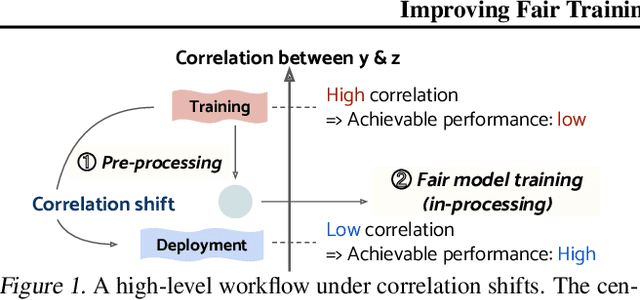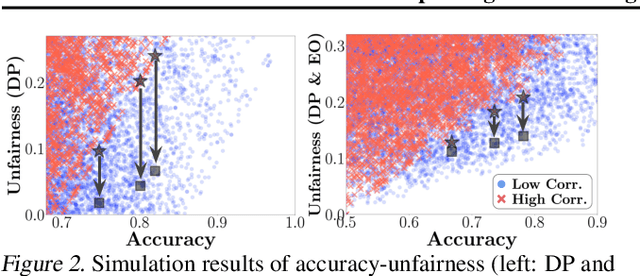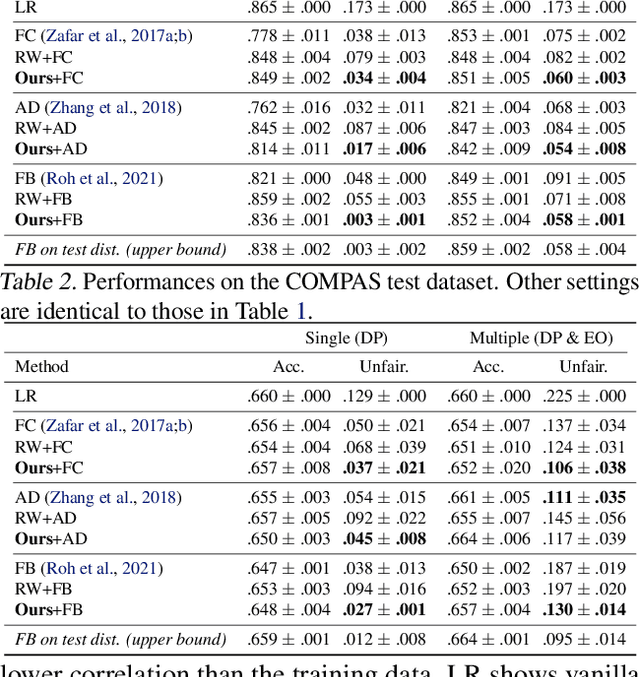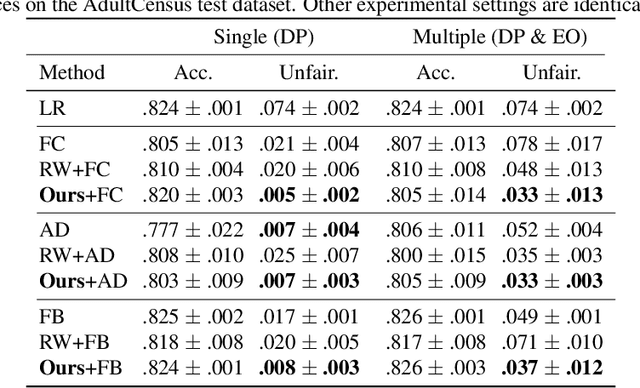Improving Fair Training under Correlation Shifts
Paper and Code
Feb 05, 2023



Model fairness is an essential element for Trustworthy AI. While many techniques for model fairness have been proposed, most of them assume that the training and deployment data distributions are identical, which is often not true in practice. In particular, when the bias between labels and sensitive groups changes, the fairness of the trained model is directly influenced and can worsen. We make two contributions for solving this problem. First, we analytically show that existing in-processing fair algorithms have fundamental limits in accuracy and group fairness. We introduce the notion of correlation shifts, which can explicitly capture the change of the above bias. Second, we propose a novel pre-processing step that samples the input data to reduce correlation shifts and thus enables the in-processing approaches to overcome their limitations. We formulate an optimization problem for adjusting the data ratio among labels and sensitive groups to reflect the shifted correlation. A key benefit of our approach lies in decoupling the roles of pre- and in-processing approaches: correlation adjustment via pre-processing and unfairness mitigation on the processed data via in-processing. Experiments show that our framework effectively improves existing in-processing fair algorithms w.r.t. accuracy and fairness, both on synthetic and real datasets.
 Add to Chrome
Add to Chrome Add to Firefox
Add to Firefox Add to Edge
Add to Edge